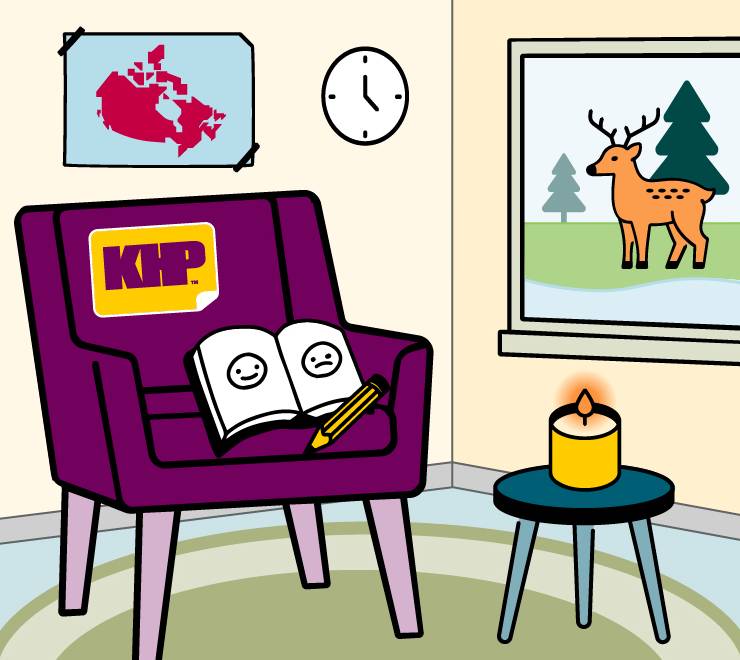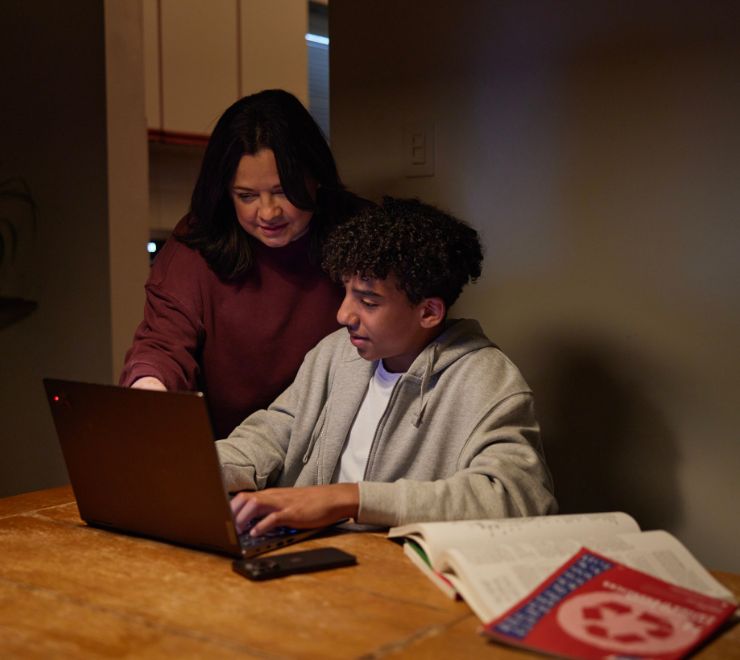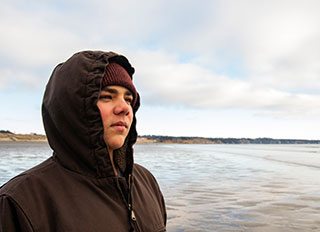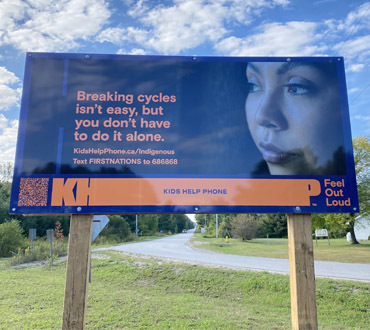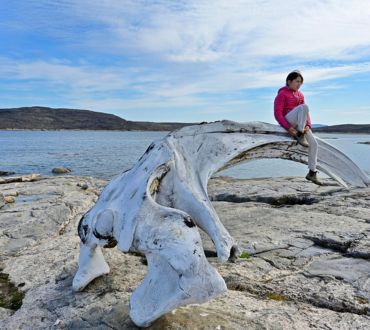Kids Help Phone knows young people across Canada are experiencing the effects of climate change, including eco-anxiety. Climate change may be on your mind as you learn about it from the news, friends, classmates, family / community members, teachers, social media and elsewhere. You may also be experiencing direct impacts if you’re living in an area facing extreme weather / environmental crises (e.g. wildfires, floods, poor air quality, etc.). On this page, you can learn about ways to cope with climate change / eco-anxiety, however they may be affecting you, and possibly take climate action. Throughout this story, you can also explore quotes about climate change, eco-anxiety and more from members of the National Youth Council (NYC) at Kids Help Phone as a reminder you’re not alone.
If you need support right now, Kids Help Phone’s free, confidential and bilingual e-mental health services are open across Canada 24/7. Our professional phone counselling service is also offered in over 100 languages including Plains Cree, Severn Ojibwe, Ukrainian, Russian, Pashto, Dari, Mandarin and Arabic with the help of trained interpreters. If you’re in immediate danger, emergency / community services are available across Canada, too. Mobile crisis support and other community services are also available in some areas. You can use Resources Around Me to find what’s best for you and available nearest your location.
What is climate change?
Climate change describes shifts in the Earth’s weather patterns that can harm the planet and living creatures, including plants, animals and humans. Large-scale acts such as burning fossil fuels (e.g. coal, oil, gas, etc.), cutting down trees and more can contribute to climate change. These activities can release extra heat-trapping gases into the air and make the Earth’s temperature go up.
When the Earth gets warmer, big changes such as melting ice, rising sea levels and more extreme weather (e.g. stronger storms, wildfires, etc.) can happen. These changes can become issues when they harm the environment and everything that relies on it.
The lands, waters and wildlife in Canada can play an important role in people’s mental health and well-being. For some folks, thinking about the future and the effects of global warming (definition from the Government of Canada) on the planet can feel overwhelming at times. You may find yourself wondering, “What’s my place in the world?” and / or if there’s anything you can do to help the planet. If you experience distress, anxiety, hopelessness, guilt, anger, grief, etc. when thinking about the impacts of climate change, you’re not alone. And if you experience a mix of emotions, that’s OK too. Climate change is complicated and so are the feelings that can come with it.
What is eco-anxiety?
Eco-anxiety is a reflection of a person’s connection to the environment. It’s the worry you may feel when thinking about the uncertainty of the future (and the planet) because of climate change.
Anxiety is the body’s response to perceived threats (i.e. humans’ survival instinct). With eco-anxiety, climate change is the threat. The anxiety you may be feeling in relation to climate change may be your body’s way of motivating you to survive, even if it doesn’t feel that way.
Other terms related to eco-anxiety include:
- eco-paralysis (a response to feeling like there’s nothing you can do to help address climate change)
- ecological grief (a reaction to loss in the environment and changes to landscapes that provide people with meaning)
- eco-distress (a catch-all term describing the many possible feelings about / responses to climate change)
If you’re experiencing eco-anxiety, you might notice worried thoughts such as, “There’s no hope for the planet,” “Will my kids have a place to grow up?” and / or “It’s too late and there’s nothing I can do to help now.”
Other signs you might be experiencing eco-anxiety can include:
- anger / frustration toward folks who deny / ignore climate change
- existential dread (i.e. distressing thoughts / feelings about the meaning of life and your place in the world that often start when you’re unsure about how to move forward, are worried about the state of the world or have experienced a major transition)
- guilt / shame over past actions that may have impacted the climate
- post-traumatic stress after experiencing direct effects of climate change (e.g. leaving your home due to a wildfire, etc.)
- depression
- panic
- grief / sadness when thinking about lost / harmed natural environments / wildlife
- frequent thoughts about the world’s climate
- trouble sleeping
- changes in appetite
- difficulty concentrating
- tension in relationships (particularly if you hold different views on climate change)
- other effects of eco-anxiety (info from Anxiety Canada) in your daily life
To explore feelings of eco-anxiety, KHP partnered with Earth Rangers, a Canadian organization that supports young people in becoming environmental leaders by taking climate action in their homes, schools and communities.
You can take the “Eco-Anxiety to Eco Action” quiz to understand how eco-anxiety may be impacting you, discover which animal represents your eco-action style and explore more ways you can take eco-action in your community.

I have experienced eco-anxiety, and in my experience that is worrying about what life on planet Earth will look like for future generations. To deal with eco-anxiety, I try my best to implement the Three Rs (reducing, reusing, and recycling) into my daily life.
— Fazayl (she / her), 2023 NYC member
Are you experiencing distress from wildfires in Canada? Kids Help Phone offers e-mental health support, 24/7. Visit resource.
I think I’m experiencing eco-anxiety. What can I do?
You can explore the seven tips below to help you navigate climate change / eco-anxiety and find ways to support yourself (and maybe even the planet!).
Tip #1: Identify your feelings about climate change
To start, you can check in with yourself to understand what climate change may be bringing up for you. Taking some time to assess your thoughts and feelings can help support your mental health and help you decide on what to do next to care for yourself. You can:

